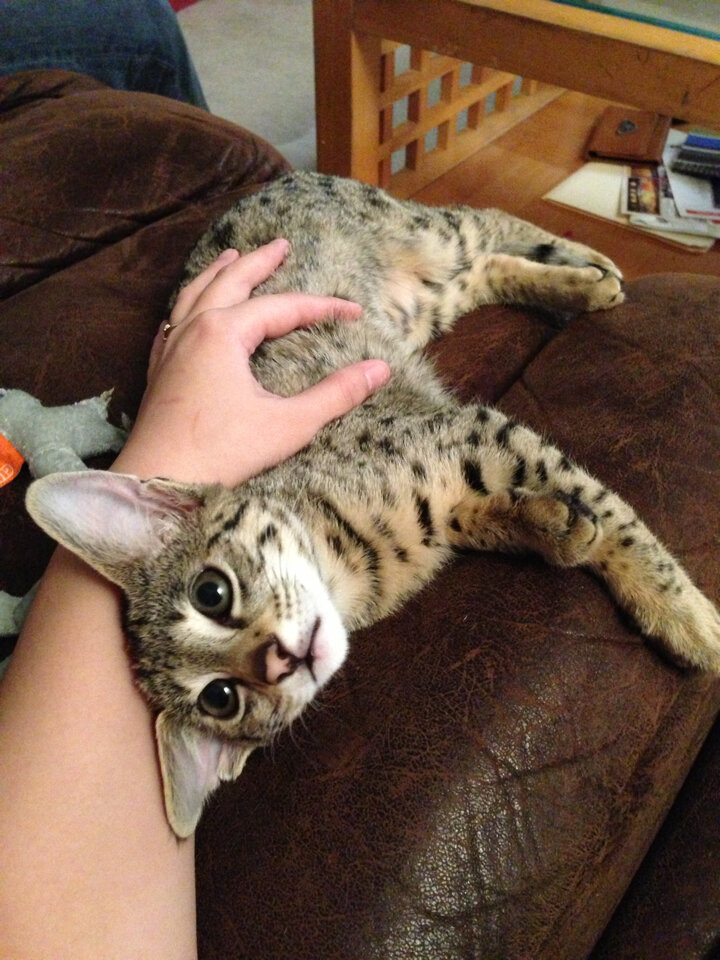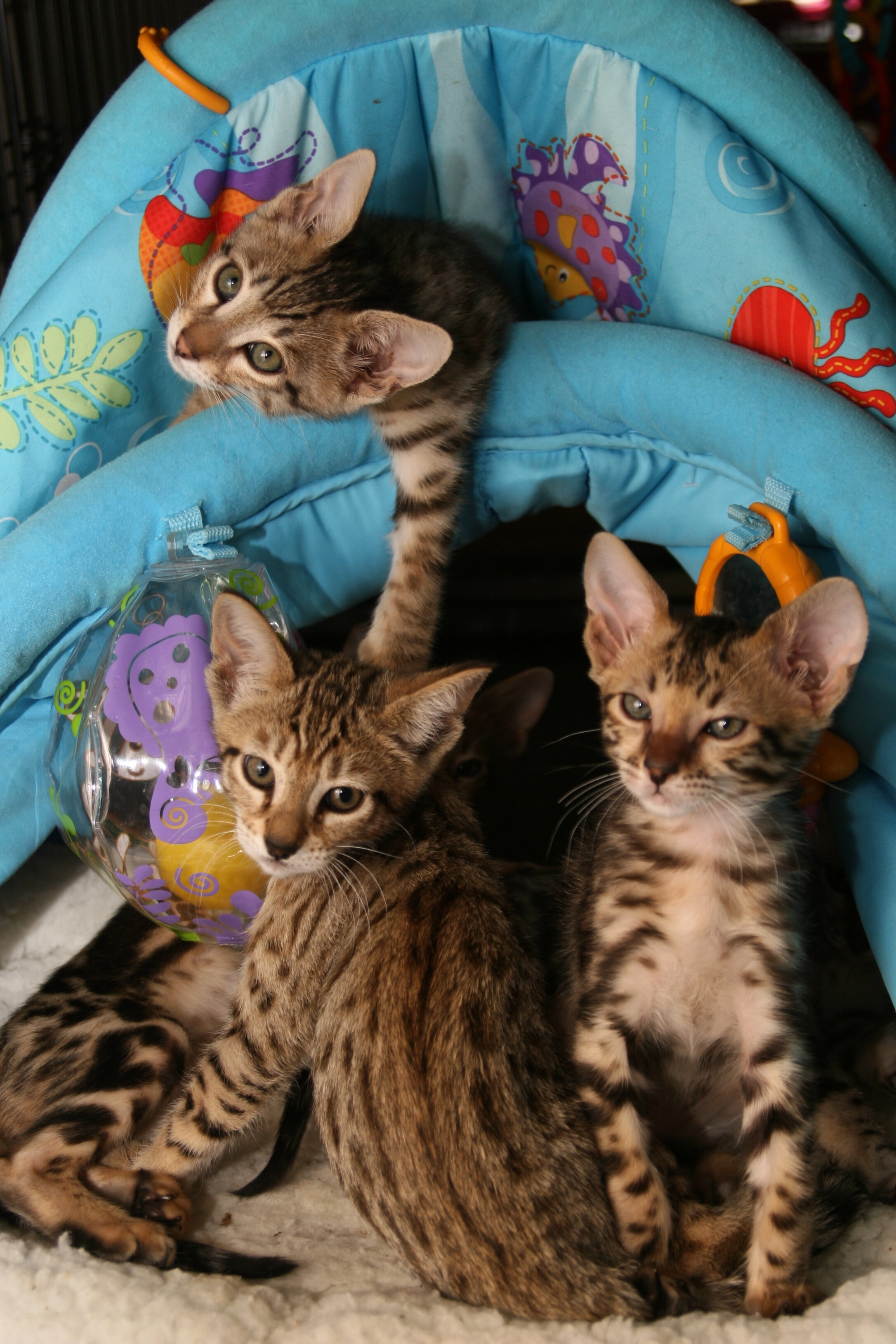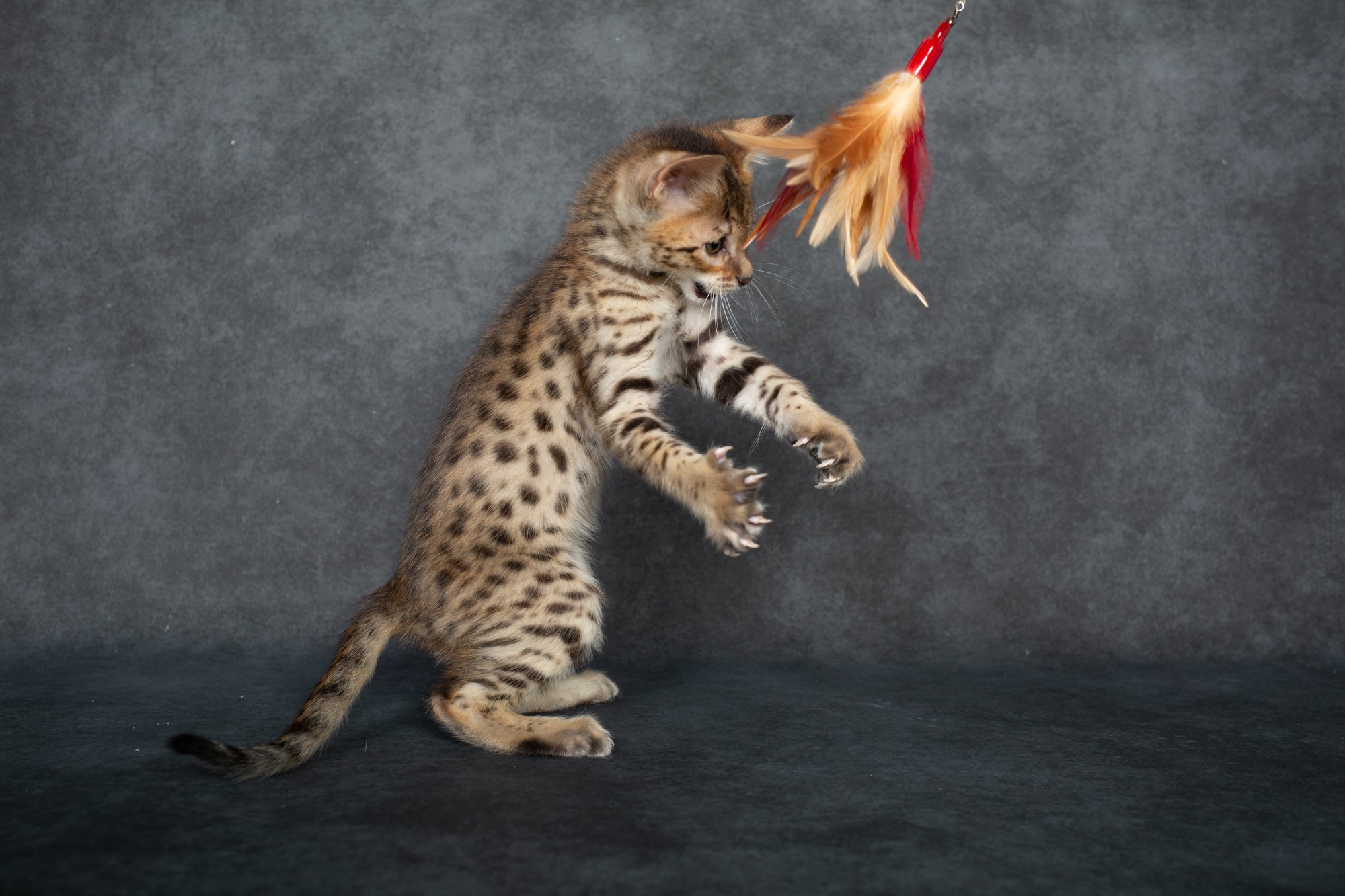Savannah Cat Personality
The personality of the Savannah Kitten is outgoing, in-your-face, extremely curious, and high energy. They want to be involved in everything. They will pout when they don't get what they wanted. And fully capable of knocking every kick knack over. "Savandalism" is the price you pay for a bored energetic cat that is not properly mentally stimulated. A bored Savannah Cat is like having an unhappy toddler.
Owners of Savannah Cats love the intelligence this wonderful breed has and moreover the challenge of providing proper mental stimulation. For most owners providing enrichment is an extremely rewarding experience that results in desired overall behavior. If you travel a lot and can not bring your devoted Savannah Cat then this breed is not for you. They will become depressed with out there beloved owner! They bond strongly and are very very VERY loyal.
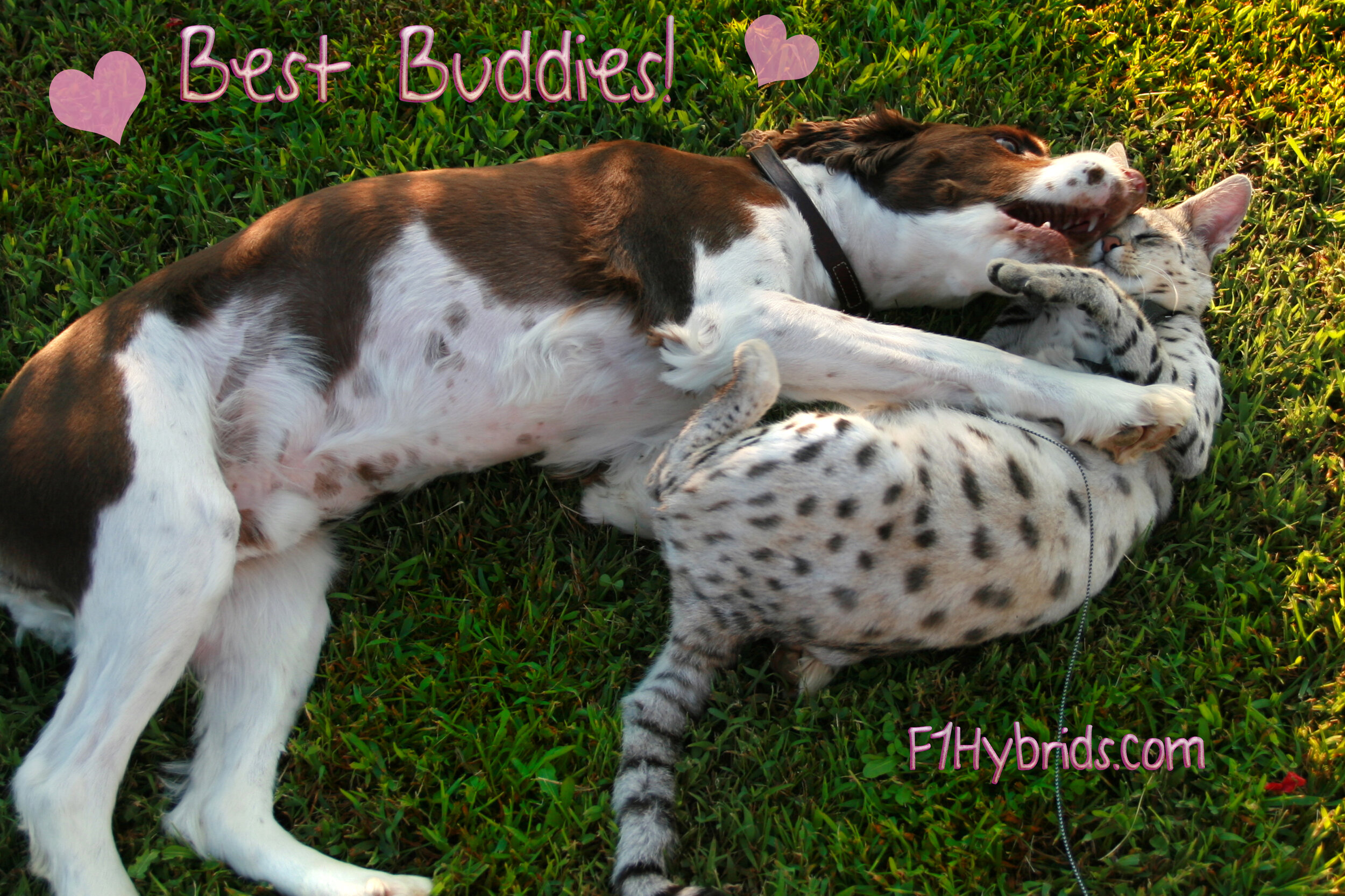
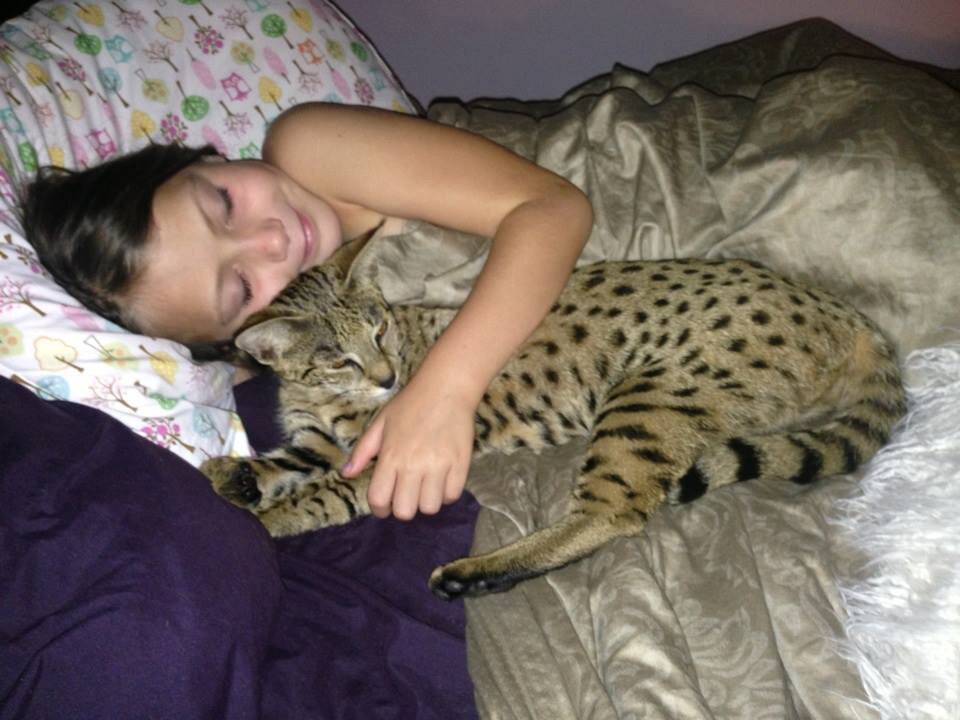
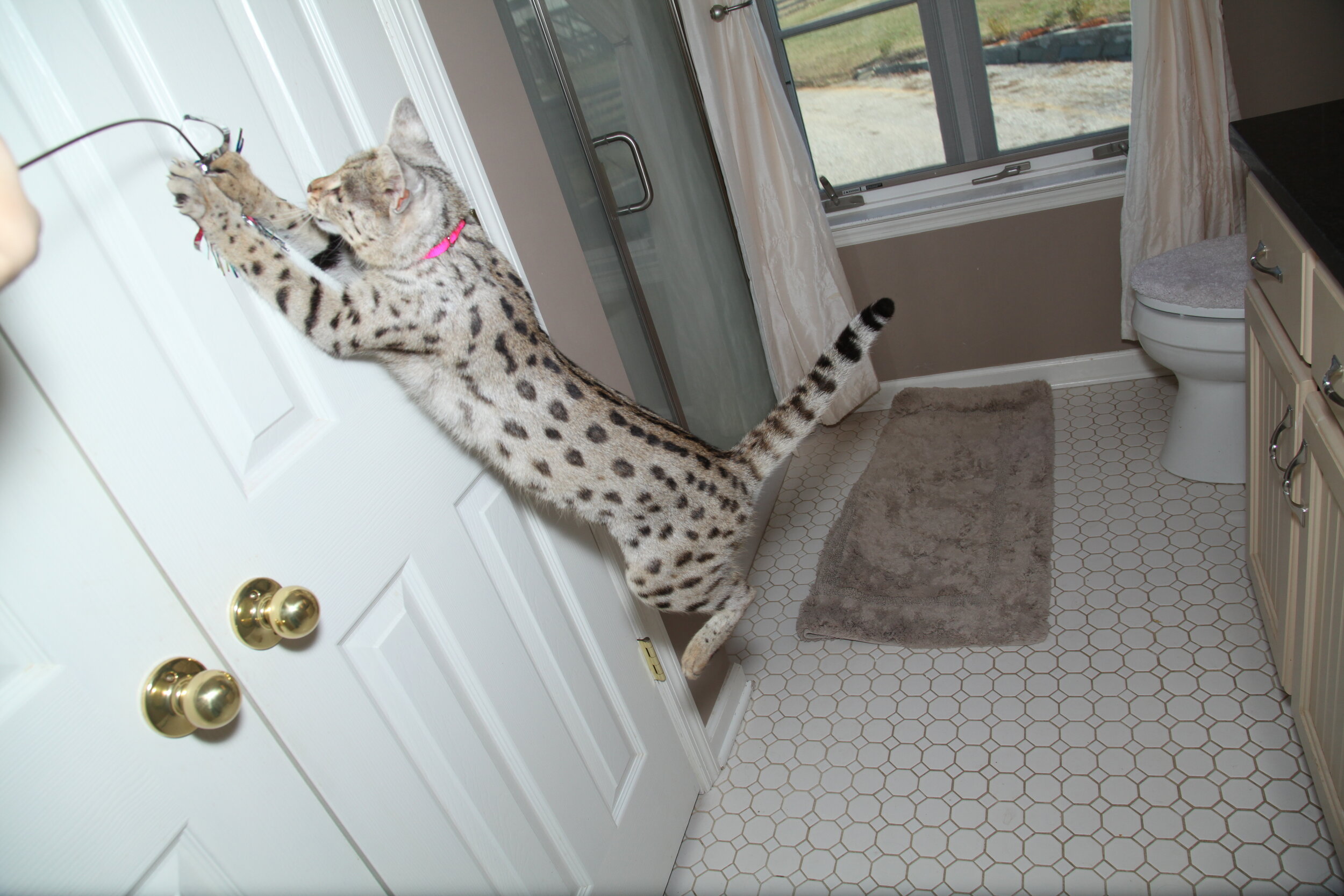
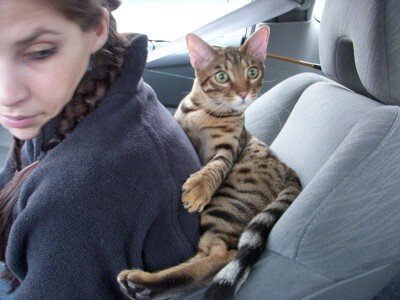
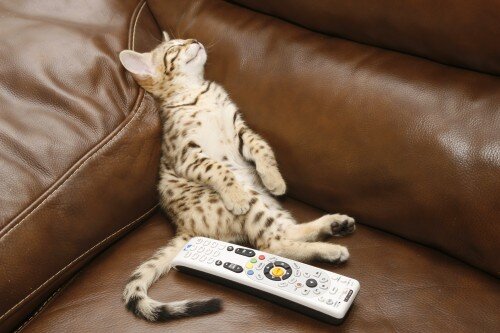
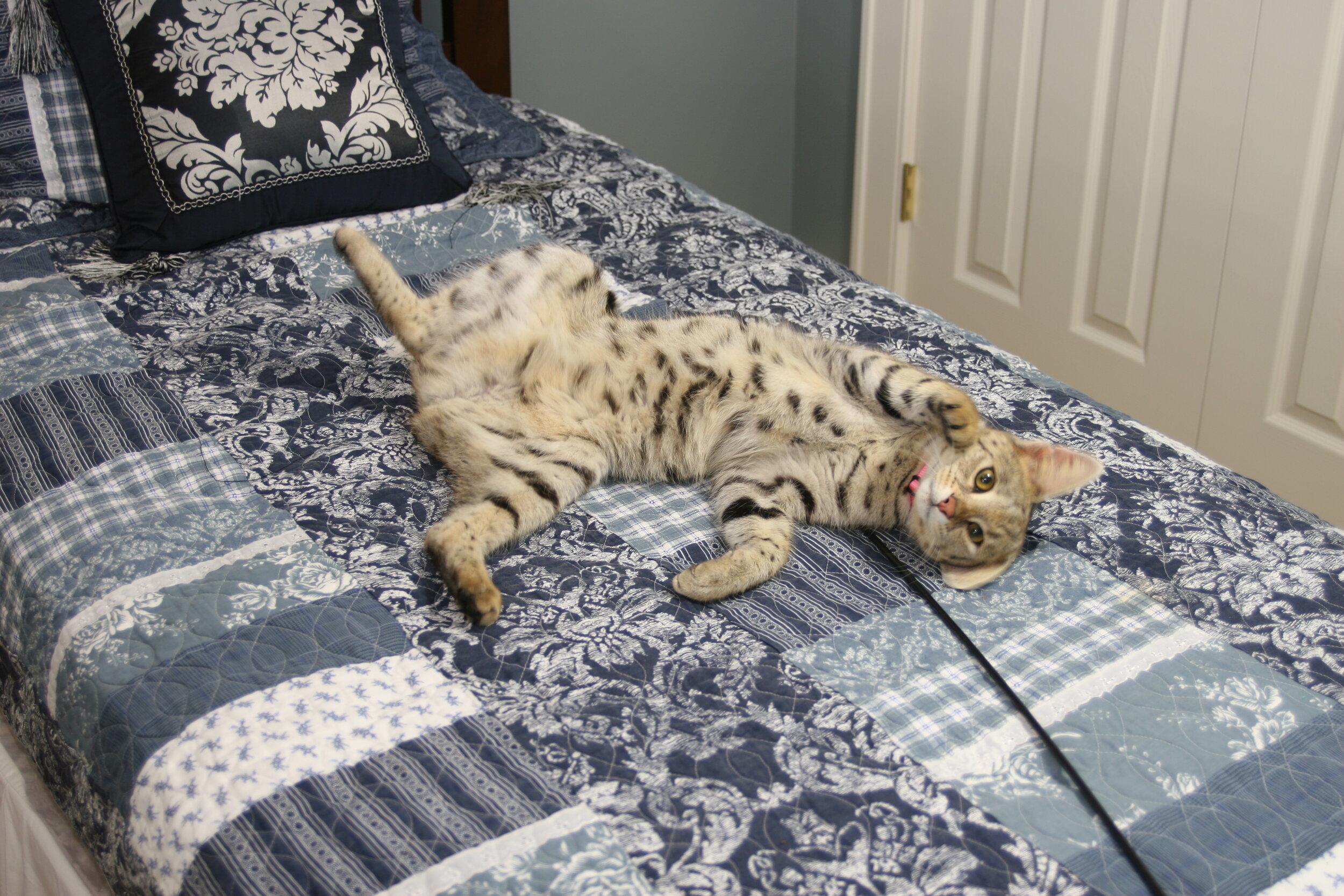
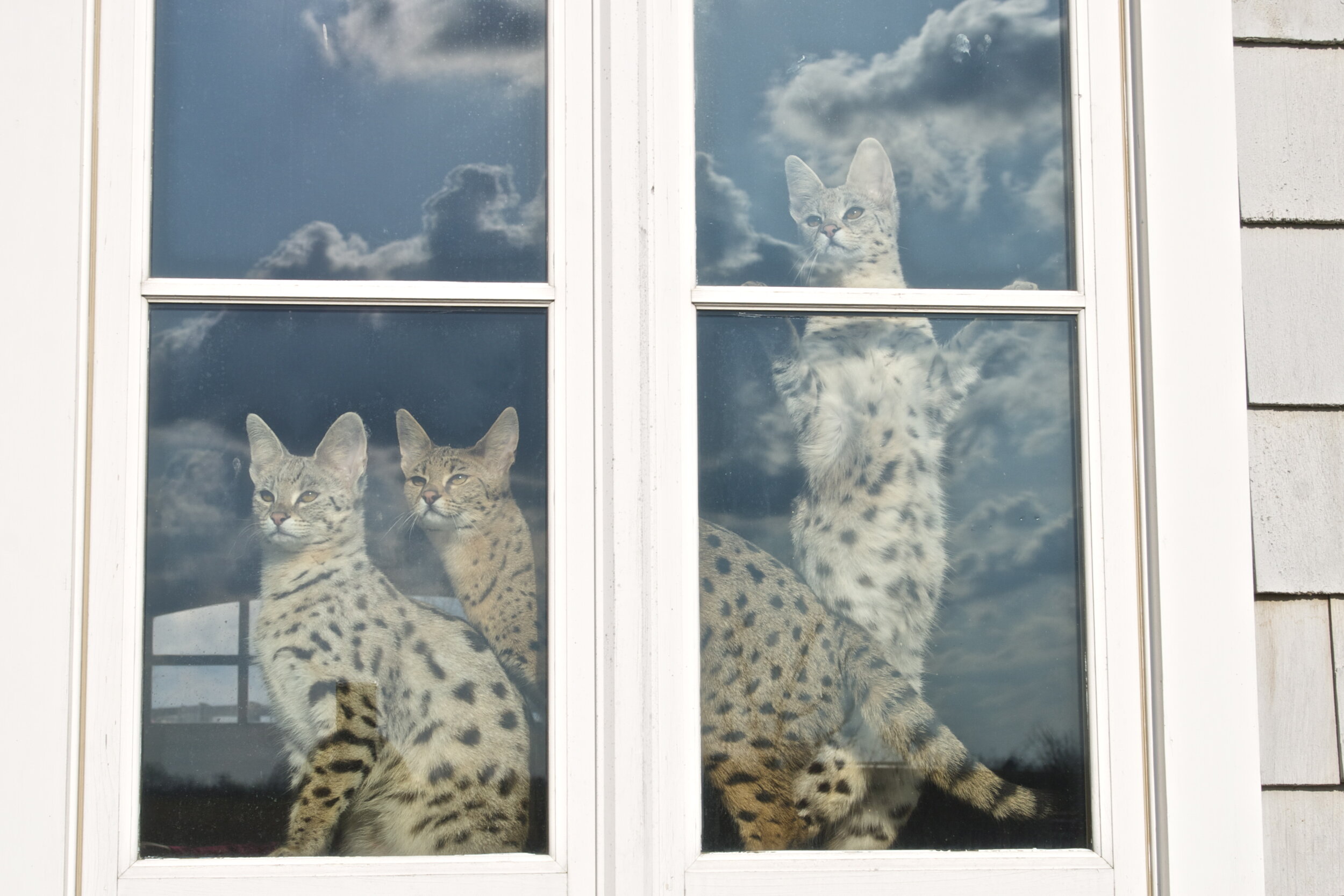
Savannah cats are not dangerous to people!
People are the real danger when it comes to animals. Any breed of cat that is mistreated or not properly raised (socialized, training, mental stimulation, exercise) can be dangerous… ANY BREED OF CAT. Blaming the breed is a dismissal of ones own fault. To be fair many cat owners truly do not understand how to handle ANY BREED of cat. This is proven by watching “my cat from hell” which clearly shows the patterns of misunderstanding of cat owners.
F1 Savannah cats are not dangerous to humans, humans are the danger! Serval Cats are not inherently dangerous to people, Serval Cats will run away from strangers and will almost always choose “flight” over “fight”! Certainly like any cat you must respect and treat it properly.
All cat breeds have hunting instincts, which means the individual may pose a danger to smaller pets such as prey animals (rodents, birds, and fish).
IMPORTANT!!! Any animal (cat, dog, bird, horse, etc) can be a nightmare if you intend to not respect what the individual animal needs for a well-balanced life. PLEASE evaluate what animal you can properly provide the optimal home!
Fetch
Savannah Cats love playing fetch and often don’t need any reinforcement to start playing fetch. Playing fetch may be considered a dog’s domain, but a cat’s natural hunting instincts of stalking and pouncing make it the perfect game for felines, as well. Cats are not generally known for following commands, but it’s not a huge stretch to imagine why cats would enjoy chasing a moving object when you consider how the game mimics a hunt.
Walking On A Leash
Purring
For a long time, we all believed that a purring cat is a happy cat. Cats purr in a variety of situations including, bizarrely, those in which they feel threatened or nervous. Experts theorize that at least some of the time purring may be a gesture of appeasement or submission.
On the other hand, this explanation provides no clues as to why cats often purr when they are injured, ill or giving birth. In these cases, it may be that the vibration itself, rather than the noise or a human’s response to it, is soothing to the cat.
It is worth mentioning, however, that cats seem to have figured out that they can get their owners’ attention by purring; cats that want something add a high-pitched sound to their purrs that is particularly difficult to ignore.
Water
While it is true that many domestic cats dislike being wet, it is by no means a universal rule; in fact, some breeds such as Savannah Cats, Maine Coons, and Turkish Van cats in particular are fascinated by water and may happily go for a swim if given the chance.
Even the average domestic cat may enjoy playing in shallow water or running water.
Large cats like leopards and lions that live in hot climates tend to enjoy splashing around in the water, but domestic cats often live in more temperate regions of the world and may avoid getting wet in order to preserve body heat.
Kneading
You probably know how irritating this particular feline habit can be; your cat is about to curl up on your lap when suddenly she decides to spend several minutes pawing before settling down. This behavior is likely an instinct left over either from the distant past or from kittenhood.
Given that cats often fall asleep after kneading, some animal behaviorists speculate that the behavior may reflect the now obsolete need to make a nest; your cat’s wild ancestors may have kneaded in order to flatten brush and soften the ground. Alternatively, kneading may mimic the actions of a kitten pawing its mother’s teat to stimulate milk production.
Generally speaking, Savannah Cats only knead when they are feeling particularly content, so when your cat has her claws sunk deep into your thigh, at least you can take some dubious comfort in the knowledge that she appreciates you.
Rub Against Objects
Given how much most cats enjoy being petted, you might very well assume that a cat rubbing against a doorway or his owner’s leg is seeking a similar sensation—sort of like scratching an itch that you can’t reach yourself by rubbing against something else.
The truth, however, seems to be a bit more complicated. Cats are naturally territorial, and they possess scent glands throughout their bodies that they use to indicate what “belongs” to them.
A cat that rubs against your legs is likely marking you as “his”; any cat that comes along later will smell your kitty’s scent on you and know to back off.
Licking
We all know how fastidious cats are about keeping their coats clean. Don’t be insulted, though, if your cat tries to “wash” you.
It’s unlikely that your cat thinks you’re dirty or at least, dirtier than any other human.
Like many animals, cats use grooming as a form of bonding; if you own multiple cats that have grown up together, you have likely noticed them washing each other at some point.
If your cat tries to lick you, you can be sure she sees you as a friend.
Pictures Showing Personality
View more Savannah Cat Pictures!

